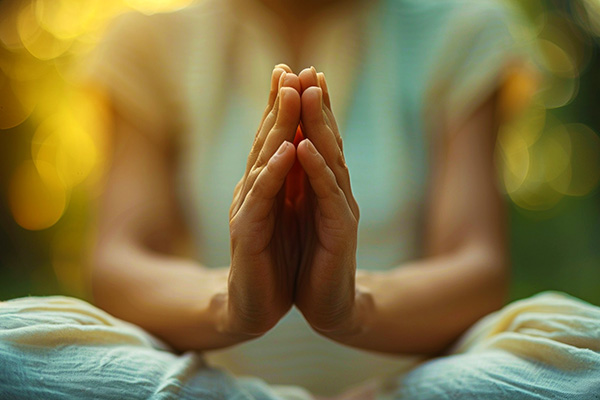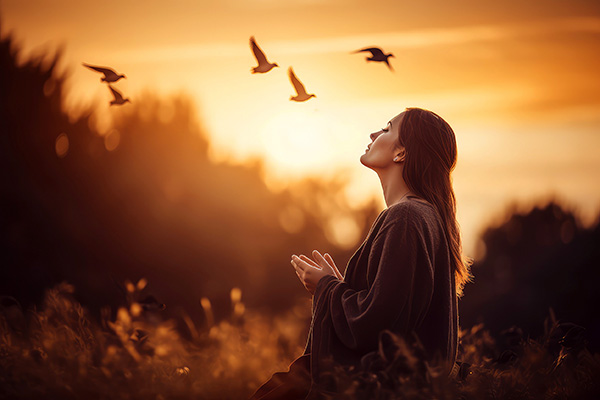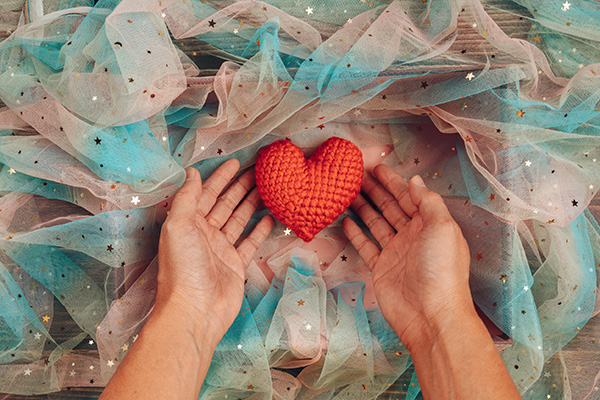self-pity
Seeing The Spiritual Essence In Others
 My world was turned upside down when my father was diagnosed with pancreatic cancer. For seven agonizing months in 2005, I became his caregiver, managing the extreme emotional and physical toll of his illness.
My world was turned upside down when my father was diagnosed with pancreatic cancer. For seven agonizing months in 2005, I became his caregiver, managing the extreme emotional and physical toll of his illness.
Even the hospice staff, experienced in end-of-life care, commented at the time that my father was not an easy patient to care for. Their observation confirmed my own feelings on the matter and highlighted the unique challenges of the difficult karmic relationship I had with my father.
Throughout this stressful time, I held out hope for a miracle. I felt compelled to seek guidance, but unfortunately Spirit revealed a timeline of six to twelve months. This devastated me at the time, but I’ve since come to accept that arrivals and departures are part of every soul’s journey. Spirit was simply confirming a poignant truth: at some point we are all called home to the spirit realm.
Despite his resistance to any form of treatment, my father allowed a trusted colleague of mine, a master in his healing modality, to visit our home weekly for body alignment sessions. These sessions became a turning point — not only for my father, but for me as well.
During their second session, my healer friend shared an observation that struck a deep chord. He sensed an immense amount of bitterness and resentment in my father, energies he had perceived without any prior knowledge of my father’s emotional state or life history. He then offered me a piece of wisdom that changed the way I viewed not only my father, but all of my relationships: “Try to see only the true spiritual essence that is your father.”
Forgiveness Is Choosing To Take Back Your Power
 Ah, forgiveness! Such a misunderstood concept. For many people, forgiveness, as noble as it may sound, is very difficult, even impossible.
Ah, forgiveness! Such a misunderstood concept. For many people, forgiveness, as noble as it may sound, is very difficult, even impossible.
Sometimes certain wrongs are so grave to us that the offender doesn’t deserve forgiveness in our eyes. There is also a misconception that forgiving someone is tantamount to excusing or justifying their terrible actions. But forgiveness is not about absolving someone of responsibility. Instead, it is a powerful, personal act of release and healing.
When we forgive someone, whether they’ve hurt us emotionally, betrayed our trust, or even caused us physical harm, we’re not letting them off the hook.
We are not condoning their actions or giving them permission to repeat those offenses. Rather, we are choosing to free ourselves from the weight of resentment, pain, and bitterness that binds us to them and their past actions.
Forgiveness is a gift we give ourselves. It allows us to move forward without the burden of past grievances and with an open heart, free of resentment.
By forgiving, we determine for ourselves that the transgressor’s actions and the memory of their misdeeds will no longer hold us hostage or march with us into the future.
While we may not be responsible for what happened to us in the past, we are responsible for how we choose to carry the memory of it into the future. This is the power of forgiveness: it gives us the strength to embrace our present reality with clarity, compassion, and freedom. It also transforms our future, for it is ultimately a karmic choice that will shape our destiny in ways we will only understand much later in this life and beyond.
What Reality Will You Create Today?
 In this lifetime, it is important to remember that we are all the creators of our own realities, as well as the co-creators of our shared reality.
In this lifetime, it is important to remember that we are all the creators of our own realities, as well as the co-creators of our shared reality.
This means that as an individual we have the divine gift of free will. Free will is our personal power to make our own choices in life. It is one of the most important and valuable aspects of human existence because it allows us to determine our own fate and shape our own destiny.
Without free will, we would not be autonomous and responsible spiritual beings in human form. Instead, we would be robots, pre-programmed to act in a certain way. Being born with free will allows us to make moral choices, to love and be loved, and to create our own unique paths in life.
Of course, with free will comes responsibility and accountability. We are responsible for our own thoughts and actions, both good and bad. We must therefore think carefully about our choices and make sure that we are acting not only for our own highest good, but also for the greater good.
Free will also does not mean that we are completely free from the constraints of external circumstances and worldly influences. We also share a collective free will with the rest of humanity. Just as we create our own daily reality and shape our individual destiny, we also co-create a shared global reality with the rest of the world.
Transform Your Life With Sustainable Resolutions
 Every new year, I hear my clients complain about what they hope to change about themselves, what they want to change about themselves, or what they should be changing about themselves.
Every new year, I hear my clients complain about what they hope to change about themselves, what they want to change about themselves, or what they should be changing about themselves.
I then ask them why they are not claiming their power to change right now?
You do not have to wait until the New Year or some other major life event to make a change in your life. Once you’ve decided on a new path or course of action, the key is to stick with it for the long haul, taking small steps every day.
The Japanese call this kaizen, a philosophical concept that emphasizes continuous improvement, often in small increments. The idea is that by making consistent progress, even if it is just a little bit each day, you can eventually achieve significant results.
Sustainability should be the ultimate goal of whatever you decide to change in your life. While New Year’s resolutions are all noble and lofty, you have to acknowledge the inherent resistances and blockages you carry within and agree to be patient with yourself in order to ultimately get there.
I’m still working on some New Year’s resolutions I made in 2016. Do I look back in horror and say, “Why is it taking so long?” or “I really should be doing better!” Sometimes, yes! Do I use that as an excuse to backslide, fall off the wagon, or throw in the towel? Not at all, mostly because I’ve come to realize that if I hadn’t decided years ago to make those resolutions to make powerful changes in my life, I’d still be where I was, or worse. I’d be living a life of regret, not progress.
The Spiritual Importance Of Releasing Resentments
 I went out for lunch today and had a bad service experience with the waitress. It was as if she didn’t care much to listen to what I wanted. She seemed distracted and careless.
I went out for lunch today and had a bad service experience with the waitress. It was as if she didn’t care much to listen to what I wanted. She seemed distracted and careless.
Two and a half months ago, I had a similar experience at another restaurant when the server packed the wrong items for me to take home. I felt ignored, even disrespected. Today’s experience brought back the same feelings and memories.
I was so upset that I decided I was not going to leave her a tip. But then, in the middle of my meal, while feeling angry and somewhat sorry for myself, I overheard a nearby customer calling her friend by the same name as my late mother.
This caused me to pause and reflect on my toxic thoughts about the careless waitress. You see, my mother was also a waitress many years ago. It was how she put food on the table and put us through school.
Perhaps today’s events were meant to remind me during the holiday season how many of us go through life with unhealed “mother wounds.”
Spirit now had my attention and proceeded to make me aware that my waitress had her own issues with her mother growing up, and that she is now a single mother herself, barely making ends meet. This realization instantly changed my perspective and my petulant attitude.

